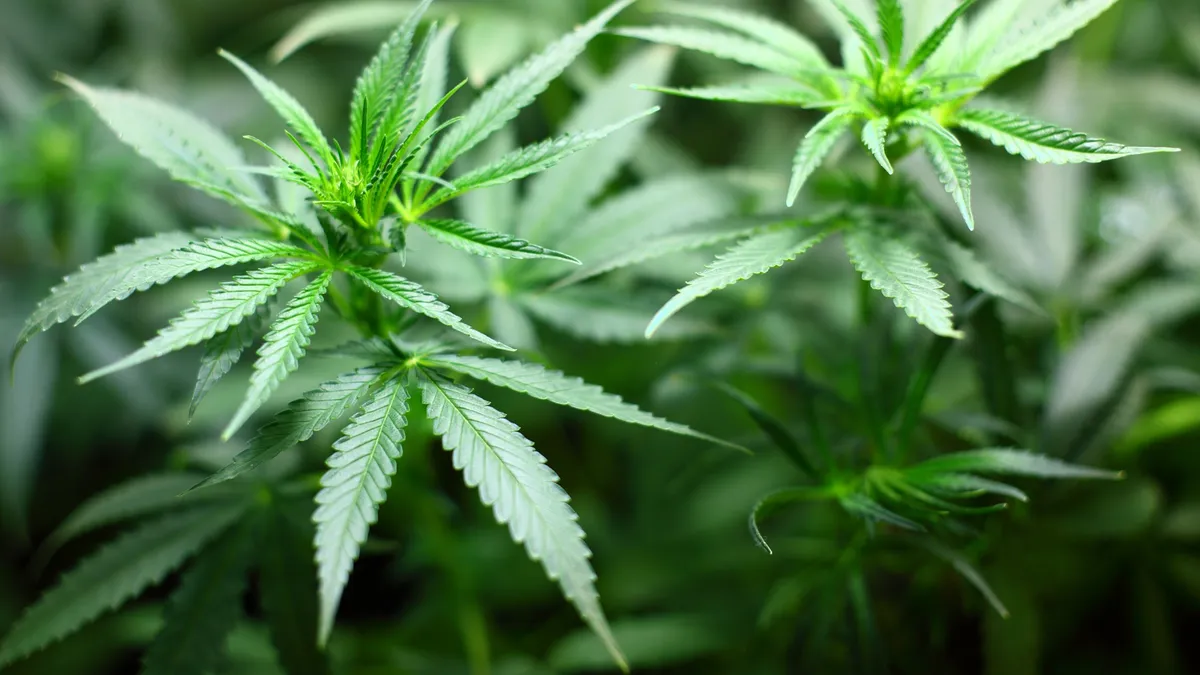Dive Brief:
- Democratic lawmakers introduced a bill in the U.S. House of Representatives that would allow students with marijuana convictions to keep their federal financial aid.
- Under the legislation, students would retain aid for six months while they complete a drug rehabilitation program. Similar bills introduced in 2016 and 2017 didn't gain traction.
- The bill is part of a growing push to restore federal aid to students with past convictions and comes as more colleges and states relax their stances toward marijuana.
Dive Insight:
The Free Application for Federal Student Aid (FAFSA) asks students if they have been convicted of any drug offense while receiving federal aid — something that can cause students to lose eligibility for some or all of that aid for a year or longer, depending on the offense.
That's the case for around 1,000 students each year, according to data cited by Inside Higher Ed. However, the number of affected students is likely higher because many don't bother to apply for aid, thinking they won't be eligible as a result of their conviction.
Critics of these policies note they disproportionately harm black students.
Even though marijuana consumption is similar for white and black Americans, the latter were more than three times as likely to be arrested for marijuana possession in 2010, according to a report by the American Civil Liberties Union (ACLU). Even though several states have since legalized marijuana for recreational use, racial disparities continue in enforcement.
"The federal aid elimination penalty ... reinforce[s] these racial disparities by ensuring that justice-impacted communities are shut out of our higher education system and that the transformative, life-changing benefits of postsecondary education remain out of reach," Julie Ajinkya, vice president of applied research at the Institute for Higher Education Policy, said in a statement emailed to Education Dive.
Moreover, such policies target low-income students who depend on federal aid to go to college, "disproportionately impacting the people who need it most," said Ezekiel Edwards, director of the ACLU's Criminal Law Reform Project.
Students can lose federal aid even if they attend college in a state where marijuana is legal or decriminalized. So far, marijuana is or will soon be legal for recreational use in 11 states and the District of Columbia. To address the growing market, some colleges are launching programs for students who want to work in the cannabis industry.
The latest bill, called the Second Chance for Students Act, aims to take steps to remedy those issues. "[A] marijuana conviction shouldn't jeopardize a students' future or access to educational opportunity," co-sponsor Rep. Gwen Moore, D-Wis., said in a statement.
However, some observers take issue with the drug rehabilitation requirement. "The presumption that somebody with a drug conviction on their record needs treatment without any kind of individualized inquiry doesn't make sense," Edwards said. "(It) would force people who may not have drug addictions or abuse issues to get treatment that is unnecessary."
The bill joins other recent legislation aiming to restore federal aid to students with convictions.
Presidential hopefuls Sen. Cory Booker, D-N.J., and Sen. Kirsten Gillibrand, D-N.Y., introduced a bill earlier this year that would remove the question about drug convictions from the FAFSA altogether. And momentum is growing for restoring Pell Grant eligibility to prisoners.
Although similar bills have been introduced before without much success, a bipartisan push for criminal justice reform may help new attempts gain traction. "It is no longer politically risky to push back at those policies," Edwards said.















